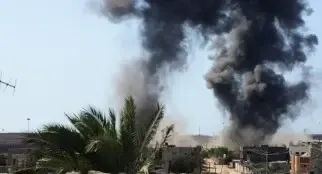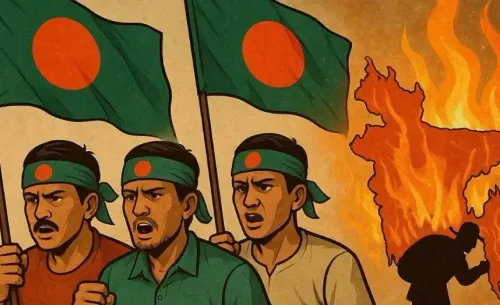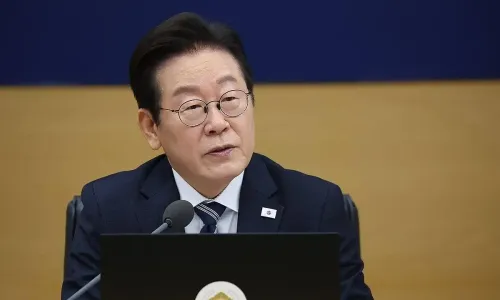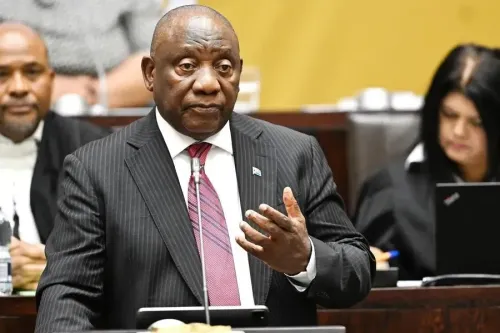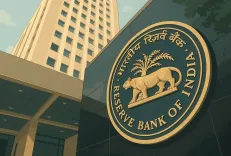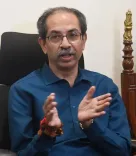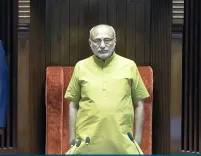Meetings Between Iranian and Omani Foreign Ministers Precede Indirect Iran-US Negotiations
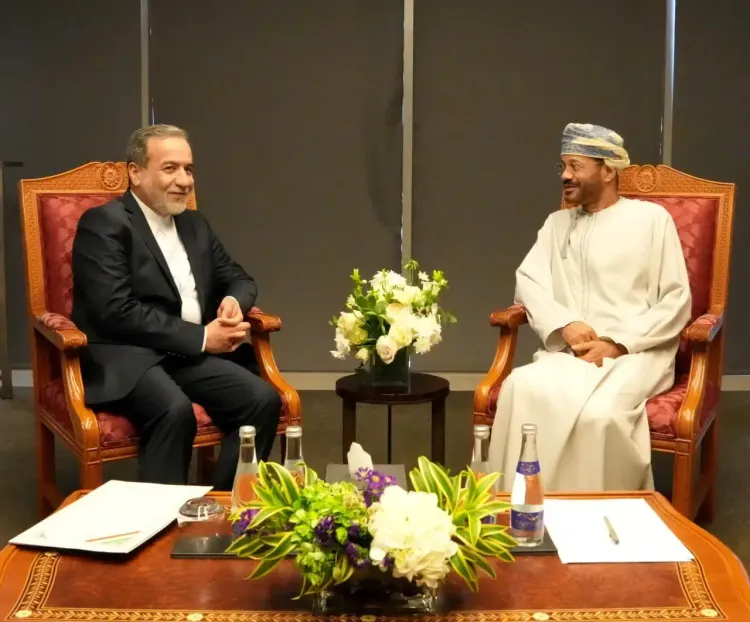
Synopsis
Key Takeaways
- Iran and Oman maintain strong diplomatic relations.
- Indirect talks between Iran and the US are set to commence soon.
- US sanctions continue to impact Iran's nuclear negotiations.
- Oman plays a pivotal role in facilitating discussions between Iran and the US.
- Concerns about military action from the US persist as negotiations unfold.
Tehran, April 12 (NationPress) Iranian Foreign Minister Seyed Abbas Araghchi engaged in discussions with his Omani counterpart Sayyid Badr bin Hamad bin Hamood Albusaidi in the capital of Oman, Muscat, in anticipation of "indirect" talks between Iran and the US, as stated by the Iranian Foreign Ministry.
The encounter occurred shortly after Araghchi's arrival and prior to his planned "indirect" negotiations with US Special Envoy to the Middle East Steve Witkoff regarding Iran's nuclear program and the issue of sanctions relief.
Araghchi praised the "strong and historic" relations between Iran and Oman across various sectors, expressing gratitude towards Oman for its "responsible" stance on regional developments, particularly for hosting the "indirect" talks.
Furthermore, Araghchi updated Albusaidi on Iran's positions to ensure those views would be communicated to the US delegation.
Characterizing Iran-Oman relations as "exceptional", Albusaidi expressed his appreciation to Iran for selecting Muscat as the venue for these "significant" discussions and informed Araghchi of the preparations made.
US President Donald Trump indicated on Monday during a meeting with Israeli Prime Minister Benjamin Netanyahu in Washington that "direct talks" with Iran were anticipated.
On Tuesday, Araghchi confirmed his meeting with Witkoff in Oman on Saturday for "indirect high-level discussions".
The debate over the nature of the talks, whether direct or indirect, has been ongoing since early March, when Trump claimed he sent a letter to Iranian leaders—via the United Arab Emirates—proposing direct negotiations about Iran's nuclear ambitions.
Although Iran acknowledged receiving the letter and showed willingness for indirect discussions, it has rejected in-person talks during what it refers to as Trump's "maximum pressure" campaign, as Trump has frequently threatened severe repercussions if Iran does not cease its nuclear activities.
Trump reiterated on Wednesday that military action remains an option if Iran does not comply with demands to halt its nuclear program. Concurrently, the US Treasury Department revealed new sanctions targeting five entities, including the Atomic Energy Organization of Iran and an individual related to its nuclear endeavors.
Iran entered into a nuclear agreement, formally recognized as the Joint Comprehensive Plan of Action (JCPOA), with six major nations—Britain, China, France, Germany, Russia, and the United States—in July 2015, consenting to limitations on its nuclear activities in exchange for sanctions relief.
However, the US withdrew from the agreement in May 2018, reinstating sanctions, which led Iran to reduce some of its nuclear commitments. Attempts to revive the nuclear deal have not seen significant progress.


